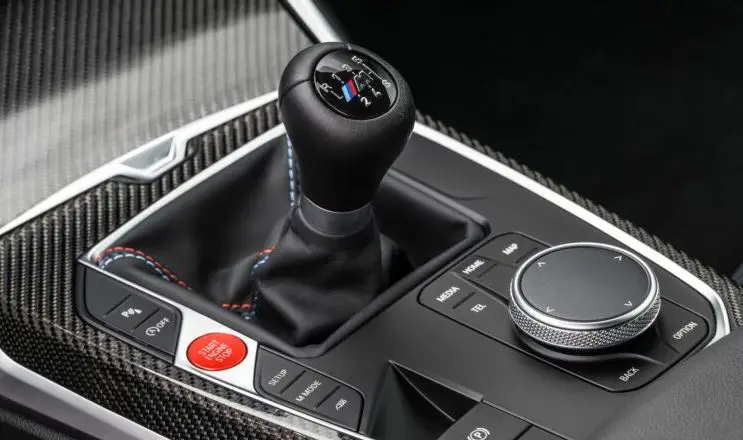Imagine this: you are peacefully settled in for the night, and suddenly, the alarming sound of your car’s security system shatters the quietude, sending you scrambling outside to check what’s wrong. You find nothing amiss, yet this becomes a recurring nightmare, affecting not just your peace of mind but your relationship with your neighbors too. If you own a Honda Pilot, you might be familiar with the alarm system going off unexpectedly. This issue has been a source of irritation for many Honda Pilot owners around the world.
A car alarm that keeps going off is more than just an annoyance; it can signal underlying issues that, if unaddressed, might lead to bigger problems in the future. Moreover, constantly responding to false alarms can be draining and might desensitize you to potential real threats to your vehicle’s security. Therefore, understanding why this happens and finding a solution is not just about preserving your peace of mind, but also about ensuring the long-term functionality and safety of your vehicle.
In this blog post, we aim to shed light on the common causes that trigger the Honda Pilot’s alarm system to go off randomly and the solutions to fix this unwarranted issue. By delving deep into the possible reasons and providing you with a step-by-step guide to diagnosing and remedying the issue, we hope to help you restore tranquility and security. Stay with us as we navigate through the intricacies of the Honda Pilot alarm system and help you find the peace that you and your vehicle deserve.
Why Does My Honda Pilot’s Alarm Keep Going Off?
Before we venture into fixing the alarm system of your Honda Pilot, it is pivotal to understand the root causes that lead to the continuous triggering of the alarm. In this section, we unravel the common culprits behind the incessant alarm triggers:
Sensitivity of the Alarm System
The sensitivity level of Honda Pilot’s alarm system is finely tuned to detect any potential threats to the vehicle. This sensitivity, while ensuring security, can sometimes become a hassle, triggering false alarms even due to minor disturbances such as a strong gust of wind, a nearby loud noise, or even a pet brushing up against it.
Delving deeper, the alarm system operates with sensors that can be adjusted for sensitivity. Over time, these settings might drift or be inadvertently altered, resulting in an overly sensitive system. Understanding the sensitivity settings and how to control them can be a first step in mitigating unnecessary alarms, providing you with a more secure and less stressful vehicle ownership experience.
Battery Issues
A well-functioning battery is the backbone of any vehicle’s electrical system, including the alarm system. When a battery is weak or dying, it can create voltage fluctuations that send incorrect signals to the alarm system, activating it without any genuine reason.
Moreover, old batteries tend to have build-up or corrosions which can lead to intermittent connections, further causing the alarm to go off randomly. Regular maintenance, including cleaning the battery terminals and ensuring it is fully charged, can help prevent these false alarms and ensure the longevity of the battery itself.
Faulty Door Locks
Door locks and the associated sensors are designed to send a signal to the alarm system in case of unauthorized access. However, with regular use, the door locks and sensors can wear down, malfunctioning and sending incorrect signals to the alarm system.
Moreover, dirt and debris can accumulate in the locks, interfering with the proper functioning of the sensors. Regular cleaning and timely replacement of worn-out locks and sensors can be a straightforward solution to this problem, helping maintain the integrity of your vehicle’s security system.
Malfunctioning Key Fob
The key fob is a handy tool that allows for remote control over your vehicle’s locking system and, by extension, the alarm system. It works through wireless signals that can sometimes be interrupted or distorted, causing it to send incorrect commands to the vehicle.
Issues such as a depleting battery, damages to the internal circuit, or interference from other devices can lead to the malfunctioning of the key fob. Regular check-ups, changing the fob battery annually, and protecting the fob from physical damages can go a long way in ensuring its proper functioning and, by extension, a well-behaved alarm system.
Factory Alarm System Issues
While less common, some Honda Pilots may have inherent manufacturing defects or glitches within the alarm system. These can be complex issues that stem from the software that controls the alarm system, requiring updates or patches to function correctly.
In such situations, it is recommended to visit an authorized Honda service center for expert diagnosis and resolution. Sometimes, fixing the issue might entail updating the system’s software or, in severe cases, replacing the entire alarm system to resolve the problem conclusively.
By getting to the heart of the possible causes, you stand a better chance at finding a solution that works. In the next section, we will explore the different approaches to diagnosing this perplexing issue accurately
Diagnosing the Issue
Once you’re aware of the common causes that could be leading your Honda Pilot’s alarm to go off sporadically, it becomes essential to diagnose the exact issue accurately. Proper diagnosis is the key to implementing the right fix. Let’s explore the steps you can take:
1)Consulting the Owner’s Manual
Why Start Here?
Your Honda Pilot’s owner manual isn’t just a thick booklet meant to take up space in your glove compartment. It’s a treasure trove of information specific to your vehicle.
What to Look For:
- Specific sections detailing the alarm system, its components, and its functionality.
- Troubleshooting guidelines or frequently reported issues and their solutions.
- Settings or adjustments that can be made to the alarm system, including sensitivity adjustments.
Remember, the manual is tailored to your vehicle model, making it one of the most valuable resources in understanding and resolving any issue.
2)Visual Inspection
Why is it Essential?
A visual inspection can often reveal obvious signs of wear, damage, or interference that could be causing the alarm to trigger.
Steps to Undertake:
- Examine the Battery: Look for signs of corrosion, leakage, or any loose connections.
- Check the Door Locks: Ensure all the doors, including the trunk and hood, are closing securely. Pay attention to any wear or damage.
- Inspect the Key Fob: Check for visible damages or any signs that it might not be functioning correctly.
3)Seeking Professional Advice
When to Consider this Step?
If after consulting the manual and doing a visual inspection you’re still in the dark, it’s time to call in the experts.
What to Expect:
- A certified mechanic or technician can utilize specialized diagnostic tools that interface with your vehicle’s electronic systems.
- They will perform tests to see if any codes or errors come up, helping pinpoint the exact cause.
- Always consider getting a second opinion if the diagnosis involves expensive repairs or replacements.
4)Recording the Issue
Why it Helps:
Documenting when and how the alarm goes off can provide clues to the underlying issue. For instance, if the alarm consistently goes off at a particular time of night, it might correlate with environmental factors or other external triggers.
Steps to Undertake:
- Note the Frequency: Record how often the alarm is triggered.
- Environmental Factors: Document any environmental changes like extreme temperatures or notable weather changes.
- Other Triggers: Note any patterns, like the alarm going off after using the key fob or when parked in specific locations.
Proper diagnosis is half the battle won. Once you can pinpoint or have a clearer idea of what’s causing the alarm to trigger, you’ll be better equipped to find a solution. In the following section, we’ll delve into practical fixes based on the root cause of the problem.
Solutions and Fixes
In this section, we delve into various solutions and fixes that you can employ to address the issues causing the Honda Pilot alarm system to go off undesirably.
Resetting the Alarm System
Resetting the alarm system can sometimes fix glitches or incorrect settings that trigger the alarm unexpectedly. You can do this by locating the fuse box in your Honda Pilot, usually found under the dashboard or in the engine bay. Identify and remove the fuse labeled for the alarm system for about a minute before reinserting it. Consult your owner’s manual for guidance on resetting the alarm system to its default settings.
Battery Replacement
If your battery is old, corroded, or showing signs of wear and tear, a replacement might be necessary. Consider having a professional evaluate the battery’s voltage and overall health. If a replacement is advised, ensure to choose a new battery that aligns with the specifications highlighted in your owner’s manual.
Repairing Door Locks and Sensors
Ensuring that door locks and sensors are functioning correctly is essential, as faulty ones can send false alarms to the system. Regular maintenance can help prevent these issues. You might want to:
- Inspect all door locks for signs of wear and tear, replacing any components that are not functioning correctly.
- Clean the sensors regularly to prevent dirt and debris from interfering with their functioning.
- In case of persistent issues, consider seeking professional assistance for a comprehensive repair of the locks and sensors.
Key Fob Maintenance
Taking good care of the key fob can prevent many alarm issues. Consider the following:
- Replace the key fob battery annually or as recommended in your vehicle’s manual.
- If the key fob is damaged, it might be worthwhile to invest in a new one to prevent false alarm triggers.
- Protect the key fob from elements like water and avoid dropping it to prevent damages to the internal circuit.
Upgrading the Alarm System
If the problems persist and all other solutions have failed, it might be time to consider upgrading the entire alarm system. Seeking advice from a professional to find a suitable upgraded system can be a wise decision. An upgraded system will not only solve the existing issues but also possibly provide enhanced features for better security.
Honda Pilot Alarm FAQ
1)Can External Factors Like Weather Affect My Honda Pilot’s Alarm System?
Yes, external factors like extreme weather conditions can affect the alarm system. For example, heavy winds might cause enough vibration to trigger a sensitive alarm system. Additionally, fluctuations in temperature can affect the battery performance, indirectly affecting the alarm system.
2)Can I Disable My Honda Pilot’s Alarm System Temporarily?
Yes, you can temporarily disable the alarm system, usually by using the key fob or by following specific steps outlined in the vehicle’s owner’s manual. However, keep in mind that disabling the alarm system reduces the security of your vehicle, and it is generally recommended to fix the underlying issue rather than disabling the system.
3)What Should I Do if My Alarm Goes Off Unexpectedly While I am Away?
If you are informed that your car alarm is going off while you are not nearby, you can try to deactivate it remotely using a mobile app if your vehicle is equipped with this feature. Alternatively, contacting a friend or family member with access to the spare key to check on the vehicle is an option.
4)Are There Any Mobile Apps That Can Help Me Monitor My Vehicle’s Alarm System?
Yes, many modern vehicles come equipped with telematics systems that allow you to monitor and control various vehicle functions, including the alarm system, through a mobile app. Check your vehicle’s user manual or contact your dealership to find out if this feature is available for your Honda Pilot.
5)Can Electrical Interference From Other Devices Trigger My Car’s Alarm?
Yes, in rare instances, electrical interference from other devices or systems can trigger your car’s alarm. This could be from devices within the vehicle, such as an aftermarket stereo system, or external sources, including high-power electrical lines or other vehicles’ remote systems.
6)Should I Insure My Vehicle Against Theft if the Alarm System is Frequently Triggering?
While a frequently triggering alarm can be a sign of a sensitive or faulty alarm system, it does not necessarily indicate a higher risk of theft. However, ensuring your vehicle against theft is generally a good practice, providing an extra layer of financial security.











[…] start the car without the correct key. The warning light will usually be accompanied by an audible alarm and possibly other security measures such as the immobilisation of the […]
[…] from your garage? Reinforce it with a stalwart lock, and contemplate a door sensor to sound the alarm when uninvited guests pay a call. A door to the great outdoors? Bolt it down tight with a robust […]